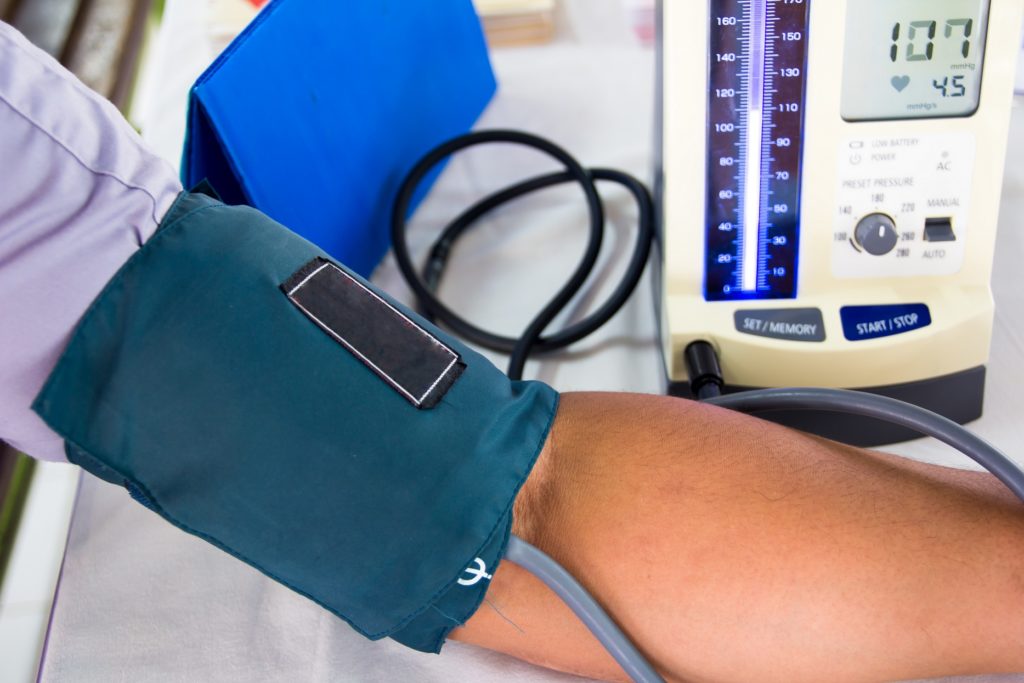Blood pressure: starting From these values, high blood pressure should be treated promptly

Hypertension – These are the guidelines for high blood pressure
In Germany alone, approximately 20 to 30 million people suffer from high blood pressure. By hypertension, the risk for many other diseases is on the rise. In the United States last year were adapted to the blood pressure guidelines. Since this adaptation will be tolerated in the United States, for example, values in elderly patients from 140/90 and in others a drug treatment sets in already at high-normal values of 130-85. We explain in this article, the specific guideline.
The limits in Europe, unlike in the US, where 130-80 apply, in principle, 140/90 mmHg. This corresponds to the previous recommendations. However, to be accepted in older patients, in part, higher threshold values, up to 160 mmHg, “in order to avoid unwanted side effects due to intensive medical therapy,” says the President of the Austrian society of Cardiology (ASC), Andrea Podczeck-Schweighofer.

In certain cases, should be in a range of normal blood pressure in the upper range (130-139/85-89 mmHg) must be treated with medication. “Namely, if, due to a cardiovascular condition, a particularly high cardiovascular risk,” explained Podczeck-Schweighofer.
The goal of the treatment therapy is, in principle, a reduction to below 140/90 mmHg. In the case of well tolerated therapy 130 mmHg should be aimed for as a systolic value, in patients under 65 years of age, 120 to 129 mmHg. Target values below 120 mmHg for all groups of patients is counterproductive, because the risks outweigh the potential Benefits.
Europe vs. USA
In the United States is given, since last year, a hypertension from 130/80 mmHg. As medically in need of treatment of patients with a blood pressure beyond 130/80 mmHg in the new US guidelines, but only if they have other risk factors. Other patients should be treated with General measures. “But even so the guidelines in the United States, according to the new U.S. alone, approximately four million additional people medically in need of treatment, not it would be with a threshold of 140/90 mmHg,” says Hofer Podczeck-Schweighofer.
New treatment recommendations for initiation of therapy in the published European blood pressure guideline. Accordingly, the majority of the high-pressure should carry out patients in the future, from the beginning of a treatment with two differently acting substances. Previously, it was recommended to start with one drug, and only need a second or third drug. “In this regard, it is noted in the guideline, and that combination preparations in which the substances in a tablet containing, are likely to increase the adherence to Therapy”, was announced by the ASC President.
Less salt, more movement
The high blood pressure can be lowered with a combination of three blood-pressure-lowering substances is sufficient, should be given according to the recommendations, also a diuretic. “Lifestyle modifications are also recommended in the new ESC guideline all of the high-pressure patients,” adds Podczeck-Schweighofer. A reduction of Salt intake, healthy diet, regular physical exercise, avoidance of Nicotine and the Aim of normal weight. The current recommendation is to consume alcohol only moderately, specifically the note that so-called coma – or binge drinking, is an absolute taboo.

On the subject of high blood pressure and cancer it is determined that a temporary suspension of cancer treatment can be considered if very high blood pressure values are only possible with a combination of treatment to control.
Also new is a recommendation to high blood pressure and physical exertion is in the high mountains. Thus, patients with severely elevated blood should refrain from printing on trips, at a height of over 4,000 meters n. n..
Not least, attention is drawn to the health hazards due to high blood pressure. This is seizures, for example, a major risk factor for stroke. In addition, it increases the risk for heart failure, atrial fibrillation, renal insufficiency, peripheral occlusive disease, or dementias such as Alzheimer’s. (sb)




